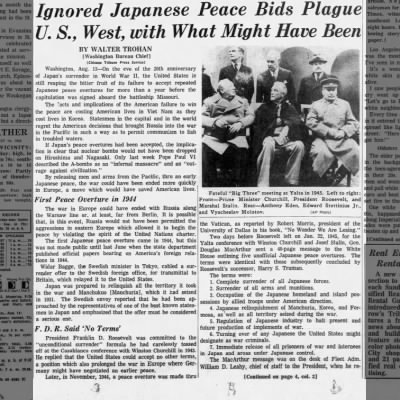Mushroom
Gold Member
This is clown material. We've had this same discussion at least twice, and you just keep repeating your drivel. Now, there are very good, scholarly books that provide detailed discussions on the Japanese peace feelers
And exactly which ones were sent by "The Big Six"? What terms were they instructing any of these "feelers" were they willing to offer to end the war?
Because the only single mission they ever actually sent out was that of Ambassador Sato to the Soviets. One even the Ambassador himself said would fail because the Big Six were not serious about surrender.
Without authority, nothing said in any "feelers" means anything.







